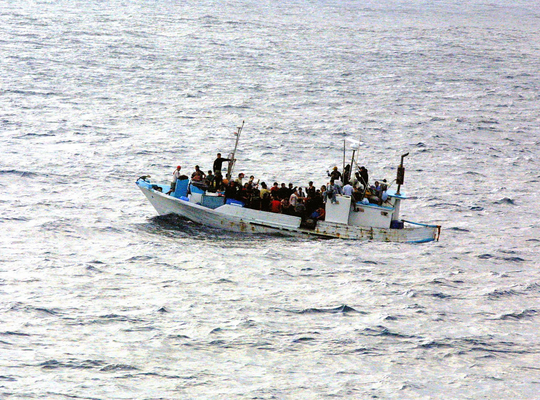You are here
European anti-drowning plan initiative

The European Commission has presented a number of new migration proposals that seem to represent an initiative for a European anti-drowning plan. The intention is to financially support the most important African transit countries, including Libya, Mali and Nigeria, if they stop migrants who want to reach Europe and take back illegal immigrants from Europe. “The N-VA has already made the case for an anti-drowning plan with all of the countries bordering the Mediterranean Sea,” Helga Stevens and Sander Loones remark. Both European Parliament members are cautiously optimistic: “Finally the European Commission is focusing on sending back illegal immigrants. Unfortunately it fails to propose a ceiling for the relocation of genuine refugees.”
“We must do everything we can to keep as many people out of the flimsy boats of human traffickers,” Helga Stevens states. “That’s why it is such a boon now that the Commission couples relocation of refugees with push backs, a strong border policy and tough approach toward human traffickers.” And by doing so, the Commission now also reminds the African transit countries of their responsibilities. “Without their far-reaching participation in an effective repatriation policy of illegal immigrants, they risk losing a significant amount of development aid,” Helga Stevens confirms. “Existing trade benefits can also be revoked. Finally the EU dares link these aspects, something we argued for ages ago.”
Investment plan
At the same time, the European Commission suggests stimulating private investments in the transit countries involved through a European investment Fund. “With a stable economic outlook, people can build up a future in their own region. Therefore I consider it logical that we support every country actively collaborating on putting a stop to this asylum chaos and working on this anti-drowning plan,” Sander Loones states. “But still, let’s not be naive: not every country will be an equally stable and loyal partner.”
Integration of newcomers
Finally, the Commission also provides more resources for the integration of recognised asylum seekers and proposes a review of the blue card that highly educated third country nationals can use to reside and work in an EU Member State. “What is most important is that those extra resources reach the competent authorities in the member states, so that they can spend them themselves, adapted to their own local needs,” Helga Stevens clarifies. “Of tremendous significance for the blue card is, in turn, linking it to an effective job vacancy that can only be filled through such a blue card.”

